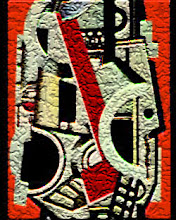19 December 2018
__________________________
THIS is my final piece for 2018. So I want to wish all of you an advance Merry Christmas and a Happy New Year!
And what a year it has been. If at the end of 2017 you told me that in 2018 we would have a new government and there would be a fistful of Barisan Nasional bigwigs in court being charged for multiple crimes, I would have laughed in your face and asked you to share whatever it was you were smoking. But here we are.
And man, in May there was no need for any sort of substance, legal or otherwise, to feel high. The euphoria was practically tangible. Not for half the population, granted, but for those who voted for change. It was a moment of not just happiness but great pride.
As a university lecturer, I am often travelling abroad (Asean only for small fish like myself) speaking at conferences.This year, I got to use my country as an example of how people can peacefully change a government and how the democratic process can still work despite the filthy laws and tricks that those in power used and got up to. For a brief shining moment, we were the symbol of not just democracy but also a movement away from repressive regimes. Not just for our region, but the whole world. I have never felt so proud.
Besides being a wonderful achievement by itself, the election in May also marked a shift in the way that people were thinking. Suddenly, there was hope for the future.
The new government will be corruption-free and progressive and we can start moving forward. Moving forward in a manner that took the interest of all Malaysians at heart. No more politicising of race and religion. No more disrespecting of human rights.
Well, that went south pretty quick. Within a few short months, we have seen the government backing down to ignorance and racial fear-mongering as it made a U-turn on the promise to ratify the International Convention on the Elimination of All Forms of Racial Discrimination (Icerd).
This was particularly painful because all the points that were raised by the opponents of the treaty were founded on outright lies.
The Icerd allows for – indeed it demands – affirmative action if it is needed. This is exactly what our Constitution says as well, where the special position of Malays and Natives of Sabah and Sarawak can be protected via quotas and the like as long as it is “necessary” and “reasonable”.
To say otherwise is to lie.
With all the machinery at its disposal, the government did not put up a convincing attempt to try to convince the Malays (and it was mainly the Malays who objected) that they had nothing to fear. And how sad is it to live in a country where we can’t say loud and proud that we disagree with racism.
Then there is the U-turn on local elections. This was promised to us and now we are told that it can’t happen because it will be racialised. Exactly how this will occur is not made clear. Once again, Malaysians are expected to just listen to Uncle Government because it knows better than us.
As the year comes to a close, instead of yuletide cheer and end-of-year merrymaking, we are now faced with the repulsive sight of slug-like creatures crawling out of their political party to slide towards those in power.
The noxious slime coating their bloated bodies leaves a trail of toxic mucus as they crawl with large pleading eyes to be admitted into a party that has not lost.
If they think that the stench of their previous loathsome life while in power is not going to stick to them like cat poo on the sole of a heavily threaded running shoe, then they are delusional.
But what is this? There is a possibility they will be accepted? Oh no! I realise this is the season of goodwill but this is too much, man.
It is not all over. There is still time to do good work. Institutions can still be reformed.
Ministers learning the ropes can still become experts and do a good job. And as much as we must criticise every bump in the road to reform, we must not give up on the agenda to change this country for the better.
The year started off like any other year – cynical but with the slightest sliver of hope. In the middle of the year, we had one of the most unexpected and significant things to have happened to us as a nation, and now at the end of the year, we are once again brought down to earth.
It is impossible to stay as wide-eyed and optimistic as we were a few short months ago. But we must continue to hope and continue to strive. After all, that’s what we have been doing all this time.
